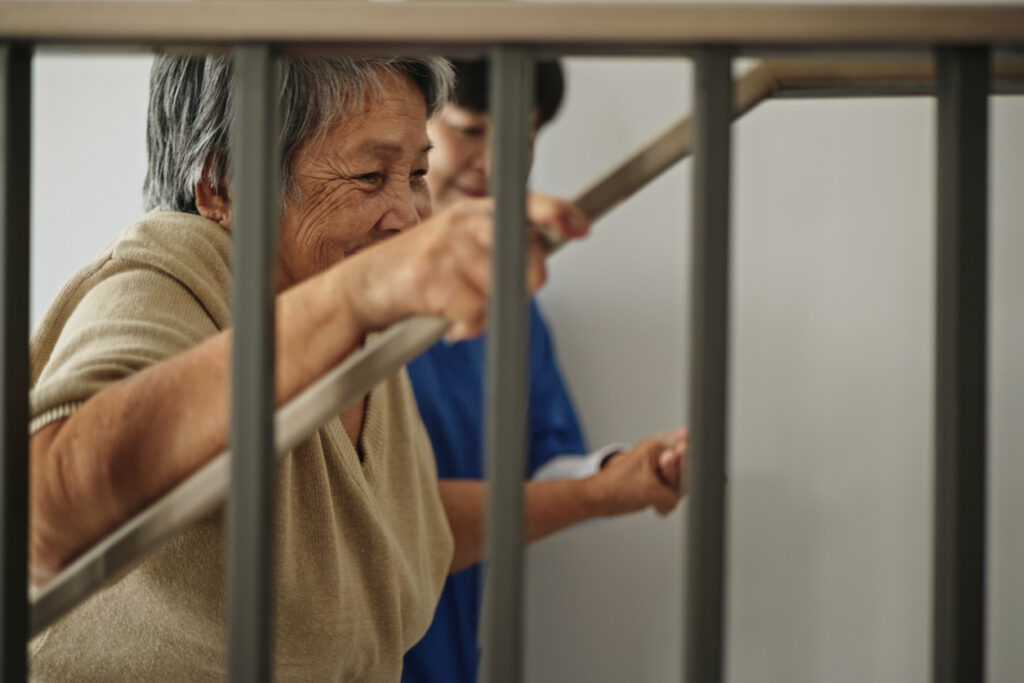
A founder’s perspective: Strengthening services with a loan
Anne Royle from Pathfinder Dogs tells us how she found the loan process and reveals why she’ll soon need a new loan for a much larger project…
Pathfinder Dogs is a registered charity based in Scotland. Its main focus is training assistance dogs for people who are blind or partially sighted.
Why did you need a property?
When a client is matched with one of our dogs, they take a three-week residential course with us. I teach the client how to work and care for the dog, and how to understand what the dog is telling them.
During the course, we have to feed and house the client, which used to cost us over £3,000 in hotel fees. So, we wanted our own property instead. The house also makes it easier to assess clients, as it means I can check how they cope in different situations.
Clients who have recently lost their sight aren’t yet ready for a dog. They need to relearn life skills first, like how to put the washing on, make a cup of tea and so on. We teach them that here too.
Why did you decide to buy rather than lease?
Owning works out cheaper than renting. It also means we have an asset, which makes us more solid and sustainable. And we can adapt the property if we need to, for example putting in tactile flooring, which we might not be able to do in a commercial property.
How did the purchase come about?
We were ‘on license’ with a commercial property so needed to move out. This house came up for sale. I messaged one of our supporters, who offered to lend us the money we needed to buy it. We then needed a loan to pay him back.
Why did you choose Charity Bank for your loan?
Our accountant recommended Charity Bank. We did look at one other bank, but they couldn’t help us.
Could you have bought the property without loan finance?
No. We wouldn’t have wanted to owe our supporter for that long. Also, it looks good for us as an organisation to be paying back a loan each month.
How did you find the process of getting the loan?
I was surprised by how much of the paperwork was duplicated. As a blind person, going through all that paperwork was hard work. A lot of the paperwork that we’d already been through with our solicitor was then requested by Charity Bank’s solicitor a couple of months later, so we had to check through it all again.
Our main point of contact, Danny was brilliant. He understood that paperwork would take longer as I’d need to listen to it rather than read it.
What would you say to other charitable organisations that are thinking of taking out a loan?
Make sure you’re clear about what exactly lenders are looking for.
What’s next for Pathfinder Dogs?
We’re looking to build a couple of hundred houses. There will be a gated community of 50 homes for blind and partially sighted people so that they can live independently. The other houses will be sold to pay for it all.
Some of the areas that people are housed in now by councils are really unsafe. I wouldn’t place a dog there, so these areas certainly aren’t safe for a person who’s blind or partially sighted.
As well as building homes, we’ll have a doctor, vet, restaurant and shop, so that everything is on site and easy to access. Staff will be trained to support people who are blind and there will be rules to make the community safer, like children not being allowed to cycle on pavements.
I’ve already spoken to Danny about the project as we plan to come back to Charity Bank for the loan. We’re in the process of buying the land, so I hope to be starting work by the end of the year.
Any other plans?
We want to start a breeding programme for German Shepherd assistance dogs once we have the village. And we’re taking on another advanced trainer. We have a list of 92 people waiting for dogs. German Shepherds were the first dogs to do this kind of work, but there is only one other charity in the whole world that just trains German Shepherds like we do. So, we’re going to be busy, but it’s nothing I can’t handle!
About Charity Bank
Charity Bank is the loans and savings bank owned by and committed to supporting the social sector. Since 2002, we have used our savers’ money to make more than 1400 loans totalling over £605m to housing, education, social care, community and other social purpose organisations.
Nothing in this article constitutes an invitation to engage in investment activity nor is it advice or a recommendation and professional advice should be taken before any course of action is pursued.


